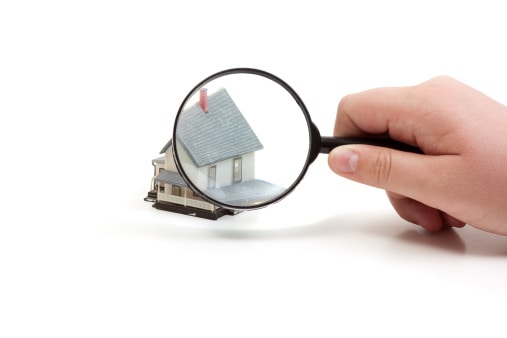If you’re looking for ways to save on your monthly mortgage payments, refinancing can help. Many homeowners choose to refinance every year, and getting an appraisal is a crucial part of the process.
Read on to learn more about refinance appraisals and what they can mean for your financial health and how they’re often the key to a successful refinancing endeavor.
What Do Appraisers Look For In A Refinance?
An appraiser’s job is to look at your home’s current market value objectively. When it comes to refinancing, they’ll take a look at recent sales near your current home to help them gauge this value.
The recent home sales are also known as comparables, or “comps.” In addition to the market value, the appraiser will also take a look at the condition of your home. The appraisal typically lasts around 30 to 45 minutes in total.
The appraiser will want to see the condition of the home, as well as any additional parts, like a deck or garage. They’ll use this alongside the recent sales records in your neighborhood to determine a viable “market value.”
The bank bases your home’s value on what the appraiser puts in their report, which is why this process is so crucial. Of course, they also use other information like your credit and income, but the appraisal is the very first step in the refinancing process.
Other factors that go into determining the current value of your home are the total number of rooms, location, and functionality, including how your home is laid out. If you’ve made improvements such as a new roof or HVAC system, those factors will also be taken into consideration. You can choose to be there when the appraiser arrives to point out any upgrades or improvements you’ve made.
Does A Mortgage Refinance Require An Appraisal?
In most cases, your mortgage lender will need an appraisal in order to move forward with the refinancing process. However, there are a few programs that allow you to forego the process altogether.
Currently, the FHA (Federal Housing Authority) offers a streamline refinance, which means there’s no appraisal required. There’s also the Veteran’s Administration Interest Rate Reduction Refinance program, which also allows you to skip the appraisal process.
Some conventional loan programs are starting to offer appraisal-free refinances as well. Just make sure that you’re able to prove that your income and job situations have either remained the same or improved since you purchased the home.
Overall, lenders want to be sure that you’re still capable of repaying your mortgage. With these “streamlined” refinance programs, you might be able to avoid the time and stress that often comes with waiting for appraisal results.
If it turns out that you do need an appraisal, your lender will have little to no contract with the appraiser whatsoever. Due to new regulations after the 2008 housing crisis, lenders and appraisers must be independent of one another. That ensures that you’ll get an objective result and report when the appraisal is complete.
For those who must get an appraisal, you’ll be responsible for the cost. Most appraisals cost anywhere from $300 to around $450. This cost will be paid upfront and can depend on the complexity of the assessment, your location, the refinance amount, and more.
How To Prepare For Refinance Appraisals
For most homeowners, an appraisal is required to get approved for a refinance. So, how can you prepare yourself and your home for this critical step?
Remember that an appraisal is not the same thing as prepping your home for a sale. Try to keep your house free of clutter, and make all entry points easy and safe to access.
You won’t need to worry about finishes like flooring, so there’s no rush to swap that old carpeting with beautiful hardwood floors. Instead, focus on the main components of your home like the roof, appliances, and structure to ensure that everything is in excellent condition.
It can’t hurt to freshen up your home with a new coat of paint or some new plants outside. Clearing the clutter away will allow the appraiser to get a clear view of what they need to see without having to look past everything in your home. Make sure every single part of your home is open and clutter-free, including the basement and all spare bedrooms.
Check every light switch, appliance, and any other significant components to be sure they are all working before the appraiser arrives. That includes fans and vents, as well as any visible cracks in the walls or ceilings. Make all repairs as necessary before the appraisal occurs to ensure a higher value.
Another way you can prepare is to ask your bank if they can use a local appraiser. The bank has control over who they choose, but they can narrow down their choices based on location. If the appraiser is more familiar with the area, then they could produce a more accurate report based on their knowledge of local market value.
How To Get A High Appraised Value For A Refinance
While you can’t control the real estate market, you can at least manage a few things in your own home. When it comes to refinancing appraisals, there’s no guarantee what the outcome will be. That doesn’t mean you can’t be proactive in the refinance process to strive for the best outcome.
If possible, try to be present for the home appraisal so you can answer any questions the appraiser may have. Being available can be a huge help since you can address any possible concerns quickly and explain any discrepancies or interests that could clear things up and boost your home value.
Clean up throughout your home, and get rid of or store away any clutter like decor and clothing. You don’t have to scrub your home from top to bottom, but you should make sure the house is neat, tidy, and that every area is easily accessible.
If you’re currently in the middle of a few projects, it’s best to wait until they’re completed before you start the refinancing process. In some cases, an appraiser may submit a report and state “subject to repair,” which means the bank might not move forward until those repairs are completed. Sometimes, they may ask you to pay for a second appraisal when the repairs are done.
Go through your home and look for any glaring problems, and make those corrections now before you refinance. The sooner and earlier you can get things fixed and working correctly, the better the odds are that you’ll get a high-value appraisal.
You should also pay attention to your curb appeal and landscaping. Make sure your deck or patio is also clutter-free. Hose off any dirt and debris or rake leaves in your yard to make the outside of your home look safe and presentable.
Timing The Market?
There is never a guarantee that your home will appraise for a lot of money, but you can still try to wait and time the market as carefully as possible. For example, if properties in your neighborhood are starting to sell for well over asking price, it’s probably a great time to refinance.
Keep a close eye on homes in your area that have sold within the last 30-60 days. You can do this by going online and pulling up recent sales, or ask a real estate agent to provide you with a recent comparable report.
While it’s almost impossible to time the market entirely, watching the housing prices in your neighborhood can give you the upper hand. If things are on a downturn, you may want to wait to refinance until prices go back up again.
Does The Appraiser Know The Refinance Amount?
You might be wondering if the appraiser knows how much money you’re attempting to refinance for your home. For them to make an accurate conclusion, they do have access to your current contract and other information about the refinance total.
Fannie Mae’s appraisal form requires appraisers to analyze the contract, which should include the price, date, and other information to help them make an informed decision. They use the refinance amount as a starting point to help them conclude the market value.
Your refinance contract gives the appraiser important information they need to make a sound decision. And, even if they’re not obligated to look at the deal, they can always look up past purchase information via the MLS system. The MLS will give the appraiser data on the previous sales and other information they need based on local market prices.
While the appraiser can use the refinance amount as a target, they should not make it their goal to meet that value. Remember, the purpose of the appraisal is to provide the bank with an unbiased, objective opinion on what your home is currently worth.
In some cases, your home could appraise for well over the refinance amount. In other cases, it could appraise for much less. It all depends on the market, comparables, and the condition and features of your home.
How Long After An Appraisal Does It Take To Close On A Refinance?
In most cases, the appraiser will submit their report to your mortgage lender within a few days after they conduct the appraisal. By law, the bank must give you a copy of the report for your records and your review.
If you’re not happy with the amount, you can appeal the appraisal and request a new one or ask the appraisal to readjust and reconsider. Keep in mind that this will extend the time it will take to close the refinance by a significant amount, and appeals don’t always come back in your favor.
You can also pay your lender the difference between the appraised amount and the refinance amount if you happen to have the cash. However, not all banks will allow this.
If the appraisal comes back satisfactory, the bank will let you know they’re ready to proceed with the refinancing process. You’ll need to submit other information to the lender like recent pay stubs, tax returns, and other paperwork similar to when you first applied for the mortgage.
While there is no set timeline from the time of the appraisal to closing on a refinance, some can close in as little as 15 days. Other refinances may take anywhere from 20-45 days. It all depends on the volume the bank is handling at the time and how quickly you get your lender what they need.
Remember to be patient when waiting to close on a refinance. The outcome and the money you save will be well worth the effort when all is said and done.
Making Your Appraisal Work for You
A home refinance can give you lower interest rates and smaller monthly mortgage payments. With refinance appraisals, your lender will have the confidence they need to move forward, knowing that your home is still holding or possibly exceeding its current market value.
If you have questions about appraisals or the appraisal process, talk to your lender before you move forward. The more you know about how the process works, the more prepared you’ll be. To learn more about how you can lower your bills and improve your finances, visit our website today.



